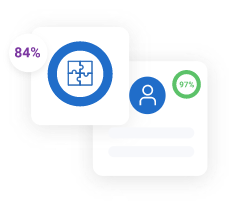- Application
- Information
Free review on your application |
1:1 counselling by certified consultants |
Higher acceptance rate on your top choices |
£6,000 Tuition Fee Reduction - 25% Discount on Accommodation
The Postgraduate International Excellence Award offers a £6,000 fee reduction across this program starting in January 2026, plus a 25% discount on on-campus accommodation.
Schedule a free callProgram Description
You’ll gain knowledge of key concepts and the nuances of effective data analysis. You’ll gain confidence in your own critical understanding of the challenges and issues arising from taking heterogeneous data at volume and scale, understanding what it represents, and turning that understanding into insight for business, scientific or social innovation. You’ll develop a practical understanding of the skills, tools, and techniques necessary for the effective application of data science.
Entry Requirements

Are you eligible to apply?
Course Content
This incredibly relevant and current course will equip you with all the skills you need to venture out into the world of analytics and big data.
Teaching and Learning
The master in Data Science and Analytics (MSc) aims to equip you with the qualities and transferable skills necessary for employment. The course is developed with industry in mind and has one or more industrial advisers who are involved in course development and delivery.
Modules are typically taught via lectures and seminars with some lab work. Where appropriate other teaching methods will also be incorporated. All learning is supported by the market leader in Virtual Learning Environments (VLE), the Blackboard Learn system.
Curriculum
Jobs - Careers
Companies seeking to employ the data science graduates include:
- Accenture
- AstraZeneca
- AXA Insurance
- British Airways
- Capgemini
- Experian
- FICO
- GE Healthcare
- HSBC
- Orange Pay Pal
- Sopra and Waitrose
Need help applying to this program?
Similar programs |